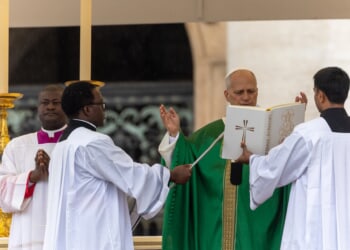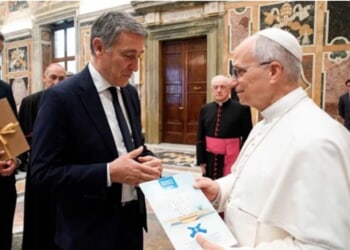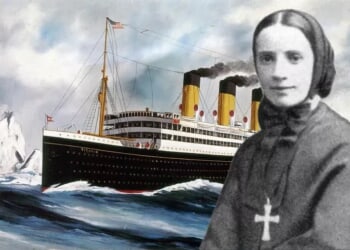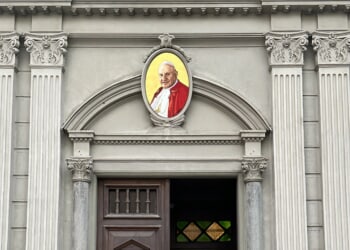Political violence has the country on edge. Polls indicate that Americans view the current climate as primarily due to a lack of strong political leadership. Genuine American leaders are everywhere, though often unseen — coaching Little League teams, teaching classrooms, running businesses, serving in firehouses, and mentoring the next generation. They lead not for recognition or themselves, but for others, quietly building character, trust, and community in every corner of everyday life.
On the eve of D-Day, drafting a note to be read if the invasion failed, he scribbled: “If any blame or fault attaches to the attempt, it is mine alone.”
You probably never heard of Lt. Colonel Ryan “Conan” Cohen, USMC. Yet on YouTube, nearly six million viewed a speech he gave in late spring 2010, on the eve of a mission into Musa Qaleh and Sangin — at that time, two of the most dangerous districts in Helmand Province, Afghanistan. Addressing a group of young Marines — boys, really — Cohen’s words were gruff, unvarnished, sometimes profane, but threaded through was an unequivocal sense of tenderness, humility, and love.
Then a USMC captain, Cohen, summoned his Marines to “breathe fire,” “to kill the enemy,” and not to let fear of combat overwhelm them, explaining to the young men that “the enemy is not 10 feet tall. He’s 4’2,” he’s got a short reach, and you’re gonna f**k him up.” The boys chuckle, knowing they are in good hands. He did not promise that they would all return; what he promised was devotion to one another, as embodied in the Marine Corps motto: Semper Fidelis. “You are obligated to protect and serve the Marines on the left and right flanks of you; 24/7! … Don’t ever forget it.”
These words bore the weight of a covenant that had traveled from Belleau Wood to Guadalcanal to the Chosin Reservoir to Hue City to Fallujah, and to that very moment. Then, with unshakable clarity, he told his men, “You will always be supported, and your actions will always be justified.” In pledging to cover even their mistakes, Cohen set the rare standard that what mattered most was them, not his military career.
Then, on a dime, his voice softened, shifting from severe to paternal:
Other than that, men, I love you and mean it when I say it. I love you as your parents love you. And my number one goal in life is to get you back home to mom and dad. To get you back home to your wife and fiances. To get you back home to your brother and sister. That’s what it’s all about. That’s all it’s about. That’s what really matters. That’s what we’re gonna strive for, day in and day out.
Here is a rare glimpse of genuine, unpretentious leadership — unyielding resolve rooted in compassion and love.
As the speech drew to a close, Cohen turned to his first sergeant and asked him to lead a prayer. The first sergeant addressed the young Marines with darkened solemnity:
This will be the last time that we’re together in mass before we cross the line of departure. Gentlemen, now is the time to exploit the opportunity you have to call home to your loved ones and to get right with your God. We might not all make it home. You have to come to terms with that. The strength of the wolf is the pack. The strength of the pack is the wolf. You have to be able to rely on the marine to your left and your right, just like the CO said, and he has got to be able to rely on you. If you’re an atheist, play along. The power of prayer is exactly that.
In that bare, cracked, desolate Afghan desert — a landscape no one would care to visit and everyone would rather forget — hardened young men bowed their heads and prayed.
Cohen’s words place him squarely within both Catholic and American traditions of leadership. Ulysses S. Grant, stern yet unpretentious, embodied a similar humility. Reflecting on his wartime “glories,” he admitted in his Personal Memoirs: “There are many men who would have done better than I did under the circumstances in which I found myself. If I had never held command, if I had fallen, there were 10,000 behind who would have followed the contest to the end and never surrendered the Union.”
A century later, Dwight D. Eisenhower showed the same instinct for responsibility. On the eve of D-Day, drafting a note to be read if the invasion failed, he scribbled: “If any blame or fault attaches to the attempt, it is mine alone.”
This legacy converges with the Catholic tradition of St. Francis de Sales, who in his Introduction to the Devout Life wrote, “Nothing is so strong as gentleness, nothing so gentle as real strength.”
That paradox — strength expressed through gentleness, leadership grounded in humility — is the thread binding Capt. Cohen, Grant, Eisenhower, and de Sales. It is the same paradox that held together a group of young Marines facing fire in Helmand. What motivates men to follow a leader into danger is not bluster or domination, but the conviction that their leader loves them enough to remind them of their families, their faith, and their humanity.
This is the leadership America is starving for — the only kind that can heal and rebuild a fractured nation. Yet men like Lt. Colonel Cohen would never enter politics, because humility, devotion, and love of others are not currencies valued in our current political discourse.
READ MORE from Pete Connolly:
The Poisonous Fruit of Youth Worship

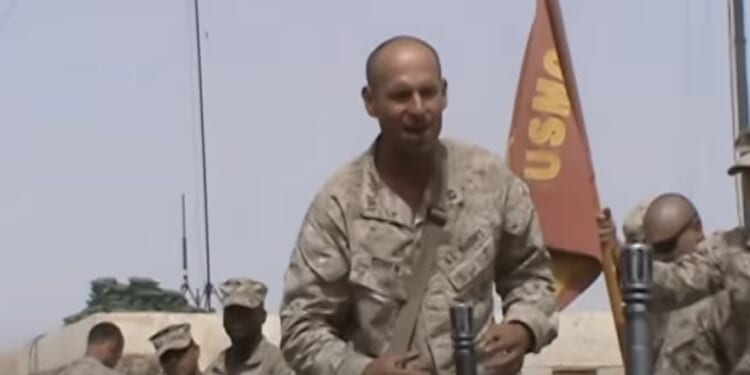
![Scott Bessent Explains The Big Picture Everyone is Missing During the Shutdown [WATCH]](https://www.right2024.com/wp-content/uploads/2025/11/Scott-Bessent-Explains-The-Big-Picture-Everyone-is-Missing-During-350x250.jpg)






![Milwaukee Brewers’ Karen Fired After Confrontation with LA Dodgers Fan Goes Viral [WATCH]](https://www.right2024.com/wp-content/uploads/2025/10/Milwaukee-Brewers-Karen-Fired-After-Confrontation-with-LA-Dodgers-Fan-350x250.jpg)

